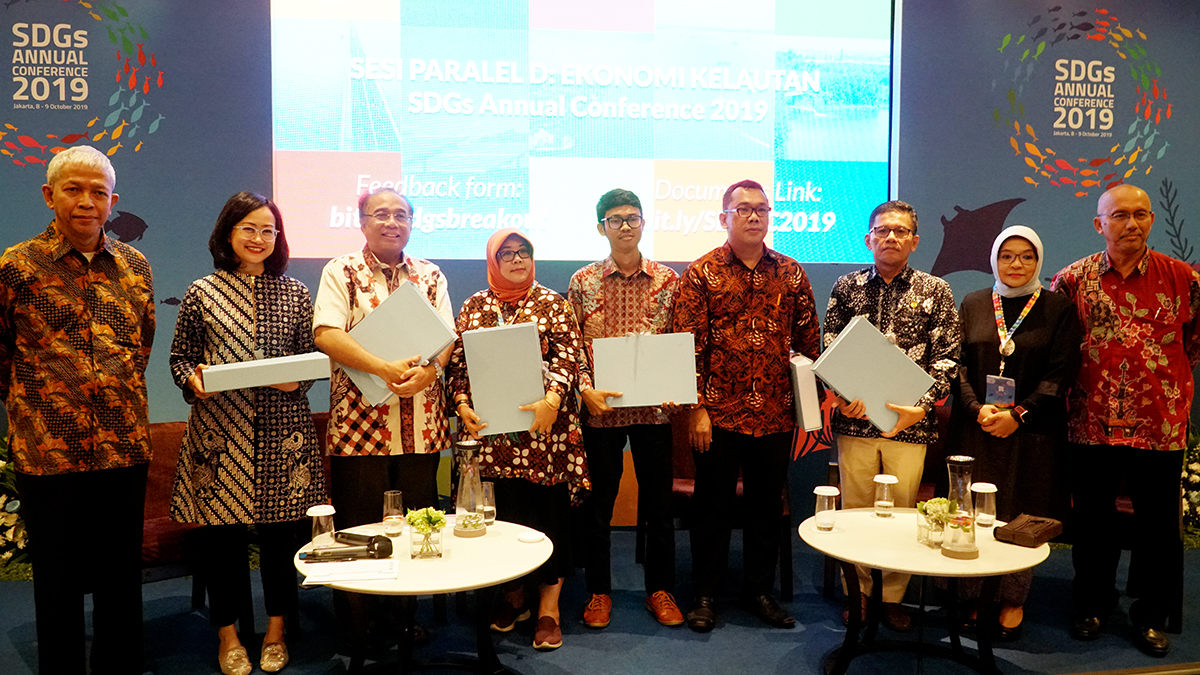On October 8, 2019 the Ministry of National Development Planning of the Republic of Indonesia (Bappenas), supported by the Global Green Growth Institute (GGGI) held the event themed Marine Economy at Fairmont Hotel, Jakarta. This event is one of the many parallel sessions held as part of the SDGs Annual Conference 2019, which is a yearly event organized by Bappenas to discuss the implementation and fulfilment of the Sustainable Development Goals (SDGs) in Indonesia. The theme of the session specifically discusses the development of a marine economy to achieve Goals number 7 on Clean and Affordable Energy, number 9 on Industry, Innovation and Infrastructure and number 14 on Life Below Water (Marine Ecosystem). Organized in a panel discussion format, the event speakers include Dr. Ir. Dwisuryo Indroyono Soesilo, former Coordinating Minister of Maritime Affairs (2014 – 2015) who now serves as an Honorary Advisor to the Minister of Tourism, Dr. Ir. Hariyanto, M.T. as the Director of Energy Conservation, Ministry of Energy and Mineral Resources, Dyah Erowati who serves as the Head of Geopark Belitung Management Agency, Leonard Tiopan Panjaitan, the AVP for Sustainability at PT. BNI Persero and, Farid Naufal Aslam who is currently the CEO of Aruna.id.
The two-hour event was opened by the Deputy of Economic Affairs at Bappenas, Ir. Bambang Prijambodo who mentioned in his opening remarks that by the end of 2015, the marine economy has contributed 6,4 percent towards Indonesia’s GDP (Gross Domestic Product) and by 2045, Indonesia aims to have that contribution rise to 12 percent. In line with that context, it is therefore important to explore the various ways to sustainably tap into marine resources, and that, a blue ocean economy is an important potential to be developed in the near future so Indonesia’s development can be maximized. This is reflected with the discussions of the invited panelists who talked about the economic potential of tourism in coastal regions or geoparks as well as advancing the fisheries industry through digital technology. Nonetheless, marine economy development also highlights the importance of energy needs which are sustainable as well as financing to provide capital or credit for small and large scale businesses wishing to tap into the marine sector.

